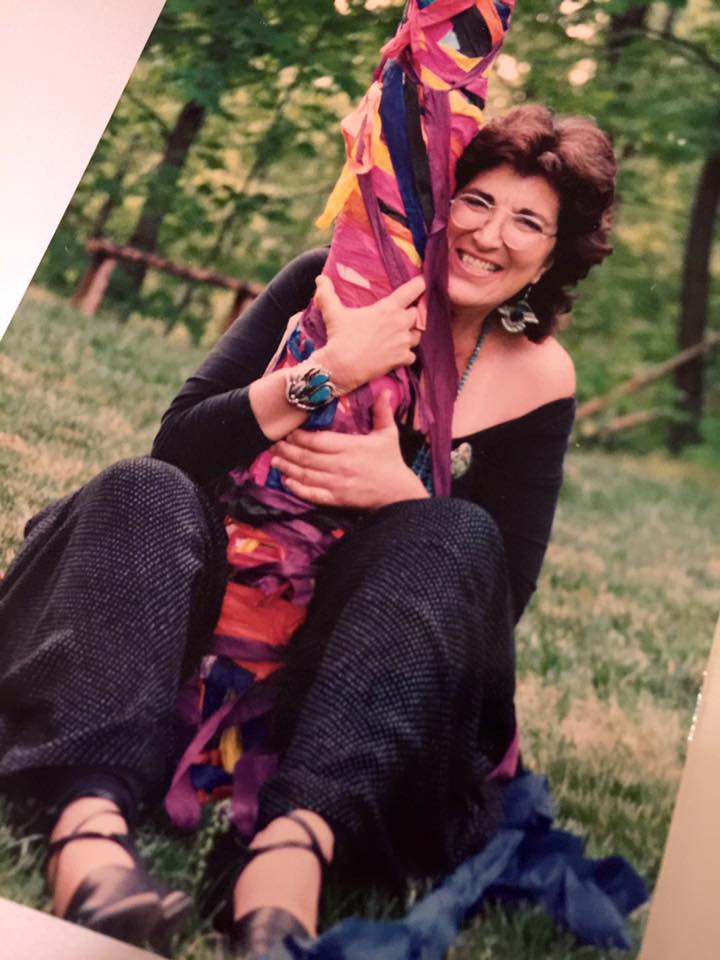“Some would call it a mid-life crisis; I would call it my Heroine’s Journey.” ~ Marcia Reynolds, Psy.D.
A friend found an old picture of me from about 20 years ago and posted it on my Facebook timeline.
“I’d almost forgotten that woman,” I said to myself when I saw the photo.
It was taken in the mid 1990s and I was in my 50s.
With the picture, those days of seeking and searching came rushing back. Joy was elusive to me then and more a theory to be talked about than an experience to be lived. The three-year-old inside of me still had both her emotional feet planted in an orphanage in Philadelphia and the grownup me was still struggling to pull them out of that abandonment quicksand.
Fifty was more than an age to me—it was a passage between looking back at what had happened and looking forward to what might happen—it was probably, more than anything else, a crisis. Specifically, a mid-life crisis.
It all culminated one afternoon when I was sitting alone on the patio at my house. The house I had lived in for almost 20 years. The house I had raised my family in. The house that suddenly seemed so empty.
The questions that Marcia Reynolds, Psy.D. talks about in her article “Wander Woman” had been plaguing me for years.
- What did I feel I should have accomplished by that time in my life?
- Was there something more important and fulfilling that I could focus on?
- What did I want more of in my life?
- What had I imprisoned that was crying to be free? and
- How could I ensure my commitment to living a significant life?
I didn’t know the answers to any of those questions. All I knew was that on that particular day, finding the answer to them became real for me. I specifically remember the resolve I felt getting up from my chair on the patio and walking over to the phone to call my husband.
I had come to a conclusion.
“I need to talk with you when you get home,” I told him, my voice deep with emotion.
I was no longer willing to continue to do nothing and to me, staying married equaled doing nothing.
I left my 30 year marriage, moved into my own house and fell headlong into raging doses of self-doubt and self-assurance, of grief and depression, of painful longing and of not knowing what would satisfy me and of being exhausted by struggling for the stars while seeing them still to be just out of reach.
Many times on my way through that passage, I thought I had finally found all the answers only to have the questions change—and I wouldn’t want to feel that elated and that low all at the same time again. I wouldn’t want to look in my closet and wonder who had bought all those strange clothes or whether I preferred cream in my coffee or not, or vodka over tequila or not, or even whether I preferred sex with women or sex with men.
No. I wouldn’t want to face that many options with that little experience or background or even ethics of my own to help me plot my way.
Still, somehow, I did make it through. With a lot of help—almost seven years of help, to be exact—from friends, counseling, a support group, a massage therapist, a meditation teacher, and self-help books.
It worked.
I now realize of course that had I not done all that I did, had I not stepped down into that rabbit hole, had I stopped for even one second and looked back instead of continually looking forward, I wouldn’t be the woman I am today.
I wouldn’t be the woman who forgave life for not giving her exactly what she wanted when she wanted it, or who forgave society for either ignoring her too much or for wanting too much from her or who, most importantly, forgave her parents for—well ultimately, for being who they were, no matter how perfect/imperfect that was.
I wouldn’t be a woman who was free.
Who had turned her personal story into history, a history in which she was not the passive victim of events but instead the lead character around whom events occurred. I wouldn’t be the woman who ultimately had the pluck, the courage and the sheer perseverance to get through her passage.
In the end, I’m proud of the 50-year-old woman in the picture my Facebook friend sent me. I’m proud of how willing she was to continue to go forward even though there was no map. And today, more than anything, I’m proud that she is part of me and that I am part of her all these 20 years later.
As Reynolds said, “Sometimes we have to lose ourselves to find ourselves.” There’s no question in my mind—that’s what I did, and Reynolds was right.
Here’s her advice on how to get through should you be facing a passage of your own:
- Don’t believe anyone who tells you that you have no right to be unhappy with your life.
- It’s okay to lose your equilibrium when others think your life should be smooth sailing.
- It is okay to question your life’s purpose.
- It’s okay to say, “I don’t know who I am.”
- It’s better to ask the questions and seek the answers than to live a numb life.
Relephant:
8 Ways to Come Back to Ourselves When We’re Feeling Lost.
Author: Carmelene Siani
Editor: Catherine Monkman
Photo: Author’s Own
~
Bonus:







Read 25 comments and reply